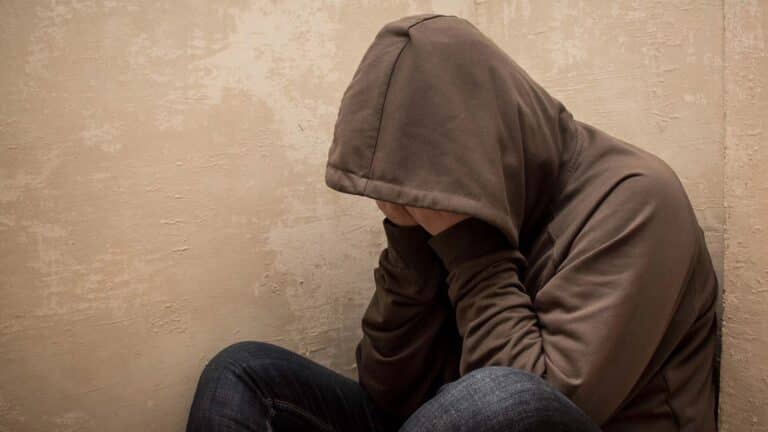Alcohol and Anxiety
The correlation between consuming alcohol and experiencing anxiety is frequently observed, and understanding how alcohol impacts mental well-being can be intricate. While some individuals may turn to alcohol for temporary relaxation, it’s crucial to acknowledge the associated risks of relying on alcohol to alleviate stress.
The relationship between alcohol consumption and anxiety extends beyond momentary relief. Excessive or chronic drinking can exacerbate existing anxiety symptoms and potentially contribute to the onset or progression of anxiety disorders.
Our Treatment Centers

Scottsdale Rehab
Luxury Personalized Rehab

HART Rehab
Holistic Luxury Personalized Rehab

Scottsdale Detox
Luxury Medical Detox
What is Anxiety?
Feeling anxious is your body’s way of reacting to stress, getting you ready for tough situations. It can make you feel scared or uneasy.
But if anxiety becomes too much, sticks around for a long time, or gets in the way of your everyday activities, it could mean you have an anxiety disorder. This is a mental health issue that needs care and is usually influenced by a mix of things like your body, mind, and surroundings.
What Are the Types of Anxiety?
Anxiety disorders include various conditions where people feel intense and long-lasting fear, worry, or nervousness. It’s important to recognize these different types of anxiety disorders for proper diagnosis and effective treatment.
Generalized Anxiety Disorder (GAD): GAD is when someone worries too much about many parts of their life, even when there’s no clear reason to worry. People with GAD often feel restless, tired, and tense, which can make everyday tasks hard to do.
Social Anxiety Disorder (SAD): SAD is when someone is extremely scared of social situations and being watched or judged by others. People with social anxiety may avoid social events because they’re afraid of being embarrassed or criticized, which makes it tough for them to interact with others or perform in public.
How Does Alcohol Affect Anxiety?
Having a drink can initially create a relaxed feeling by slowing down your brain and body. This might briefly relieve anxiety symptoms. However, once the effects of alcohol wear off, you could end up feeling even more anxious than before.
Excessive or prolonged alcohol consumption can disrupt the balance of chemicals in your brain. This may exacerbate existing anxiety issues and potentially result in persistent anxiety symptoms.
What Are the Effects of Alcohol and Anxiety?
The combination of alcohol and anxiety can create intricate effects on both physical and mental health. Understanding these potential outcomes is crucial for individuals managing the delicate balance between drinking and anxiety relief.
- When you mix alcohol with anxiety, it can make your body feel worse, like making your heart beat faster, raising your blood pressure, and making your muscles tense. Depending on alcohol to deal with anxiety not only feels uncomfortable but also increases the chances of having health problems later on.
- Alcohol might make you feel better temporarily, but it can cause ongoing mental health issues because it messes with the chemicals in your brain. Drinking a lot is linked to a higher chance of getting anxiety disorders or making them worse, leading to ongoing psychological distress.
- Both alcohol and anxiety can mess up your sleep on their own, and when you mix them, it can be hard to fall asleep, stay asleep, and might even cause sleep problems, affecting your overall well-being.
- Using alcohol to cope with anxiety might make you avoid social situations, leading you to rely on alcohol even more when you’re around others. This can damage your relationships, make you avoid things, and make it tough to find healthy ways to handle anxiety.
- People who use alcohol to deal with anxiety are more likely to develop problems with alcohol or other drugs. This makes mental health issues worse and requires a comprehensive plan to get better.
Does Alcohol Cause Anxiety and Depression?
While having a moderate amount of alcohol usually doesn’t cause anxiety and depression, drinking too much often raises the chance of having mental health problems like anxiety and depression. Drinking a lot affects brain chemicals like serotonin and gamma-aminobutyric acid (GABA), which control mood.
Also, there’s a cycle between drinking alcohol and mental health. People might start using alcohol to handle anxiety or depression, but this can end up making those problems worse. It becomes a cycle where drinking and mental health issues make each other worse.
How to Prevent Alcoholism From Anxiety?
Preventing alcohol dependency resulting from anxiety involves proactive approaches that address the underlying causes of anxiety while promoting healthier coping strategies. Recognizing the intertwined relationship between alcohol use and anxiety is essential for implementing effective preventive measures.
- Early Help for Anxiety: When you deal with anxiety early, it can stop you from using alcohol to feel better. Getting professional help like therapy gives you ways to manage anxiety without needing alcohol, stopping the problem before it gets worse.
- Finding Healthy Ways to Cope: It’s important to learn other ways to handle stress instead of turning to alcohol. Doing things like regular exercise, practicing mindfulness, and having supportive friends can help you manage anxiety.
- Knowing the Dangers: Learning about the risks of using alcohol for anxiety relief is important. Understanding how binge drinking can harm your mental health helps you make smart choices and ask for help when you need it.
- Having Supportive People: Being around friends, family, or groups who understand and help with anxiety can make it less likely for you to turn to alcohol for comfort.
- Regular Check-ups: Seeing a doctor regularly can catch any mental health issues early. This helps with getting help quickly, stopping anxiety-related problems from getting worse, and preventing alcohol misuse.


